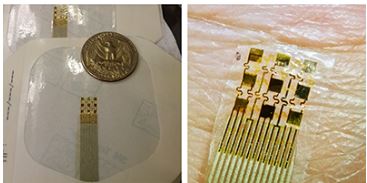Transforming FDA’s Approach to Digital Health
Remarks by Scott Gottlieb, M.D., Commissioner
Academy Health’s 2018 Health Datapalooza
Washington, DC, April 26, 2018
Digital health tools have vast potential to
- Improve ability to accurately diagnose and treat disease
- Enhance delivery of health care for the individual
- Make medical care truly patient centric — empowering the individual
Digital Health Innovation Action Plan
- New policy to streamline path for digital health products with several functions
- Draft of Working Model for precertification pilot program
Launch of Program to Apply Digital Health to Drugs
- Expand opportunities to use digital health tools as part of drug development
- Improve safety and effectiveness of drug delivery
- Mobile devices and software linked to specific drugs for medication compliance
- Advance policy framework and new guidance
Artificial Intelligence
- New regulatory framework to support use of AI-based technologies
- Understand connection between decision-making in traditional health care settings vs. use of advanced technologies
- Appropriate guardrails for to deliver benefits and meet safety /effectiveness stds
- Make drug/device development more predictable, efficient, more reflective of patients’ real-world experience
Launch of a New Premarket Digital Safety Program
- Launch of Premarket Digital Safety Program with unified data standard for electronic reporting requirements
- New digital framework can significantly improve efficiency and accuracy of premarket safety submission and review process
Launch of FDA’s New Digital Health Incubator
- Creation of an internal data science incubator – Information Exchange and Data Transformation (INFORMED)
- Conduct of regulatory science research in health technology and cancer analytics
- Collaboration with nonprofit open-access Project Data Sphere, to develop algorithms for classification of tumor dynamics
- Joint fellowship program with NCI to design and develop digital biomarkers as drug development tools
 Mission Possible: Moving the Needle Forward to Advance Health Equity
Mission Possible: Moving the Needle Forward to Advance Health Equity
FDA’s Office of Minority Health (OMH) protects, promotes, advances public health of vulnerable and underrepresented populations
- Conduct and fund research on diseases that disproportionately affect minorities
- Diversify the public health workforce
- Help minorities make better informed health decisions
- Engage with minority-serving institutions of higher learning
- Serve as a voice for those in need; rural health challenges, need for telemedicine
Partnering with private- and public-sector organizations (including VA, Yale University) to further equity on all fronts
- Getting culturally sensitive messages out to minority communities
- Ensuring minority representation in clinical trials
New Journal Article: Participation of Women in Clinical Trials Supporting FDA Approval of Cardiovascular Drugs
 Information Exchange and Data Transformation (INFORMED)
Information Exchange and Data Transformation (INFORMED)
Incubator for collaborative oncology regulatory science research
- In collaboration with the U.S. Department of Health and Human Services’ Innovation, Design, Entrepreneurship and Action (IDEA) Lab
- Focused on supporting innovations with expertise of a diverse group of oncologists, data scientists, statisticians, and entrepreneurs-in-residence
- Big data analytics and modern approaches in evidence generation for regulatory decisions
- Special emphasis on systems thinking in oncology regulatory science research t
Research portfolio
- Use of real world data for clinical evidence generation. prospective pragmatic clinical trials
- Utility of biosensors, IoT to quantify intrinsic and extrinsic factors influencing patient’s experience
- Opportunities for machine learning and artificial intelligence to improve existing practices
- Utility of open-access platforms and emerging technologies such as blockchain
 Advancing Development of Treatments for Neurological Disorders
Advancing Development of Treatments for Neurological Disorders
Published five guidances for industry related to neurological conditions
- Duchenne Muscular Dystrophy
- Migraine
- Early Alzheimer’s Disease
- Amyotrophic Lateral Sclerosis
- Partial Onset Seizures
Noteworthy aspects
- Recent explosion of new scientific knowledge about nervous system.
- Drug developers looking for clear paths to treatment solutions
- Worked with patient advocacy organizations and scientists to ensure voices were heard
- Streamlined internal review process to encourage development of short, concise documents free of unnecessary background information
Stakeholder community engagement
- Alzheimer’s disease (AD), Duchenne muscular dystrophy (DMD), amyotrophic lateral sclerosis (ALS), migraine, and epilepsy communities
- Frequent conversations with multiple drug developers about their needs
Advancing Science of Nanotechnology in Drug Development
Steady increase in approved drug products containing nanomaterials
- Including investigational new drugs, new drug applications, and abbreviated new drug applications (commonly known as generics)
Uniqueness of drug products containing nanomaterials
- May take on different chemical, physical, or biological properties
- May impact quality, safety, or efficacy
- May follow a different pathway in the body compared to small molecule drug; reach areas typically difficult to reach for a small molecule
Research to Address Challenges Related to Nanotechnology
- FDA’s Office of Testing and Research (OTR) conducting research on manufacturing and quality issues
- Identifying critical processes and material properties that can impact quality within context of efficacy and safety
- Evaluating drug’s performance and release from the nano carriers
- Encourage use of advanced manufacturing techniques to reduce variations in product quality
- Characterizing excipients in complex formulations
Draft guidance on Drug Products, including Biological Products, that Contain Nanomaterials

Biomarkers for Brain Injury Monitoring
FDA Center for Devices and Radiological Health (CDRH), Office of Science and Engineering Laboratories, Division of Physics
“We envision a day when soldiers or civilians who have experienced a blast or a head impact will be able to stick a small sensor to their forehead and know if they have sustained a brain injury. Although we may not be the ones who develop such a device, we want to contribute research that can help advance the field.”
Recent Scientific Advances
- Fexible microelectronics that are wearable and conformable for portable electroencephalogram (EEG) technology
- Use to detect brain injury in victims of traumatic events e.g. accidents, explosions
- Need scientific knowledge base related to validated brain injury biomarkers and models
Research project on field-deployable devices to rapidly collect and evaluate EEG signals
- Detect Traumatic Brain Injury (TBI) rapidly and non-invasively
- Create “smart sensors” to for emergency responders to detect EEG signals rapidly
- But lack of validated biomarkers and models of brain injury
- This research focuses on developing useful brain injury models, identifying and validating brain injury biomarkers, and studying new EEG technologies
Image credit: FDA

